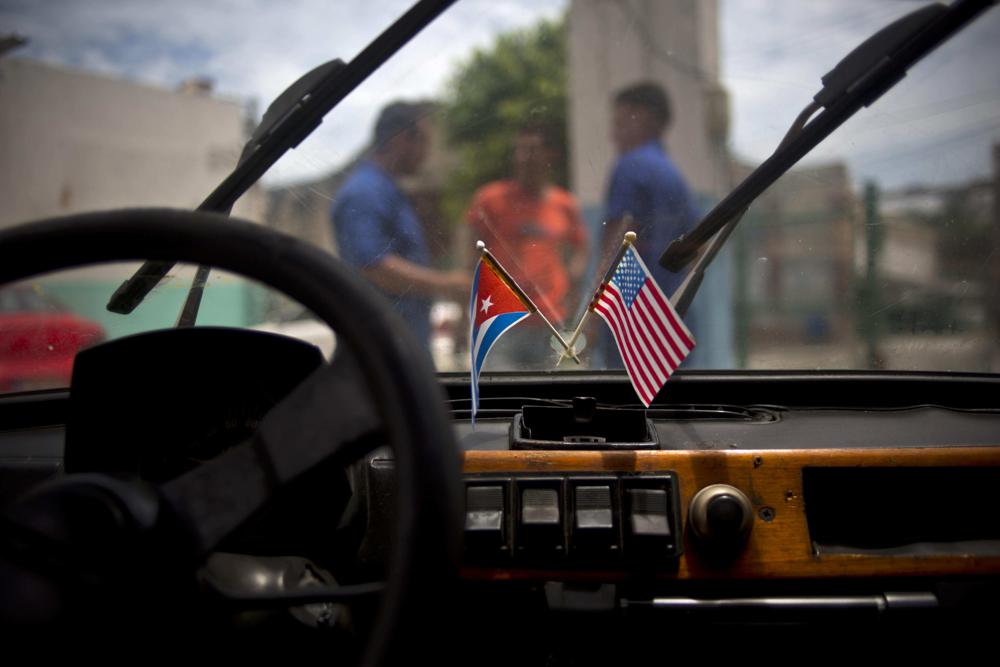The U.N. General Assembly voted overwhelmingly Thursday to condemn the American economic embargo of Cuba for the 30th year, with the Biden administration continuing former President Donald Trump’s opposition and refusing to return to the Obama administration’s 2016 abstention.
The vote in the 193-member General Assembly was 185 countries supporting the condemnation, the United States and Israel opposing it, and Brazil and Ukraine abstaining.
Cuban Foreign Minister Bruno Rodriguez said before the vote that since 2019, the U.S. government “has escalated the siege around our country, taking it to an even crueler and more humane dimension, with the purpose of deliberately inflicting the biggest possible damage on Cuban families.”
During the first 14 months of the Biden administration, the damage to the Cuban economy was estimated at $6.35 billion, equivalent to more than $15 million a day, Rodriguez said.
Rodriguez said the Biden administration is continuing Trump’s “maximum pressure” policy. He said that despite some positive but limited adjustments in recent months on U.S. flights to Cuba, remittances and consular proceedings, these in no way “modify American economic, commercial and financial measures.”
“The blockade, which has been tightened to the extreme, continues to be the central element that defines the U.S.-Cuba policy,” the foreign minister said.
U.S. political counselor John Kelley told the assembly after the vote that the United States remains committed to the Cuban people’s pursuit of freedom and dignity, is focused on their political and economic well-being, and centers its efforts “on democracy and human rights and fundamental freedoms.”
He recalled that the Cuban government pursued a crackdown on demonstrators in response to July 2021 protests by tens of thousands of Cubans across the island demanding freedom.
He said Cuba’s government also “has used harsh prison sentences, even against minors, intimidation, tactics, arrests, Internet disruptions, government-sponsored mobs, and horrendous prison conditions to try to prevent Cubans from exercising their human rights.”
While the United States holds the Cuban government responsible, Kelley said, “the people of the United States and U.S. organizations donate a significant amount of humanitarian goods to the Cuban people, and the United States is one of Cuba’s principal trading partners.”
Cuba’s deputy U.N. ambassador, Yuri Gala, responded: “If the United States government really did care for the well-being, human rights and self-determination of Cuban people, it could lift the embargo.”
The United States advocates for individual freedoms in Cuba, Gala said, “yet they have not reversed the restrictions that are having a direct impact on Cuban entrepreneurs in areas such as software development, hospitality and other areas.”
Rodriguez earlier told the assembly, “We do not blame the blockade for all the difficulties our country faces today.”
“But those who deny its very serious impacts or fail to recognize that it is the main cause of the deprivations, scarcities and hardships suffered by Cuban families would be failing to tell the truth,” he said.
Rodriguez accused the U.S. of using its powerful media and digital technology platforms “in a virulent disinformation and disparagement campaign against Cuba.” He said the U.S. is resorting to “the most diverse methods of non-conventional war, using our children, youths and artists as the targets of this political and media bombardment.”
Thursday’s 185-2 vote was similar to previous years.
The General Assembly’s vote in November 2019 was 187-3, with the U.S., Israel and Brazil voting “no” and Colombia and Ukraine abstaining.
The assembly’s 75th session began in September 2020, but because of the COVID-19 pandemic the vote on the Cuba resolution was postponed until June 2021, when the vote was 184-2 as the U.S. and Israel voted “no” and Brazil, Colombia and Ukraine abstained.
General Assembly resolutions are not legally binding and are unenforceable, but they reflect world opinion and the vote has given Cuba an annual stage to demonstrate the isolation of the U.S. in its decades-old efforts to isolate the Caribbean island nation.
The embargo was imposed in 1960 following the revolution led by Fidel Castro and the nationalization of properties belonging to U.S. citizens and corporations. Two years later it was strengthened.
Then Cuban President Raul Castro and President Barack Obama officially restored relations in July 2016, and that year the U.S. abstained on the resolution calling for an end to the embargo for the first time. But Obama’s successor, Donald Trump, sharply criticized Cuba’s human rights record, and in 2017 the U.S. again voted against the resolution.
(AP)











